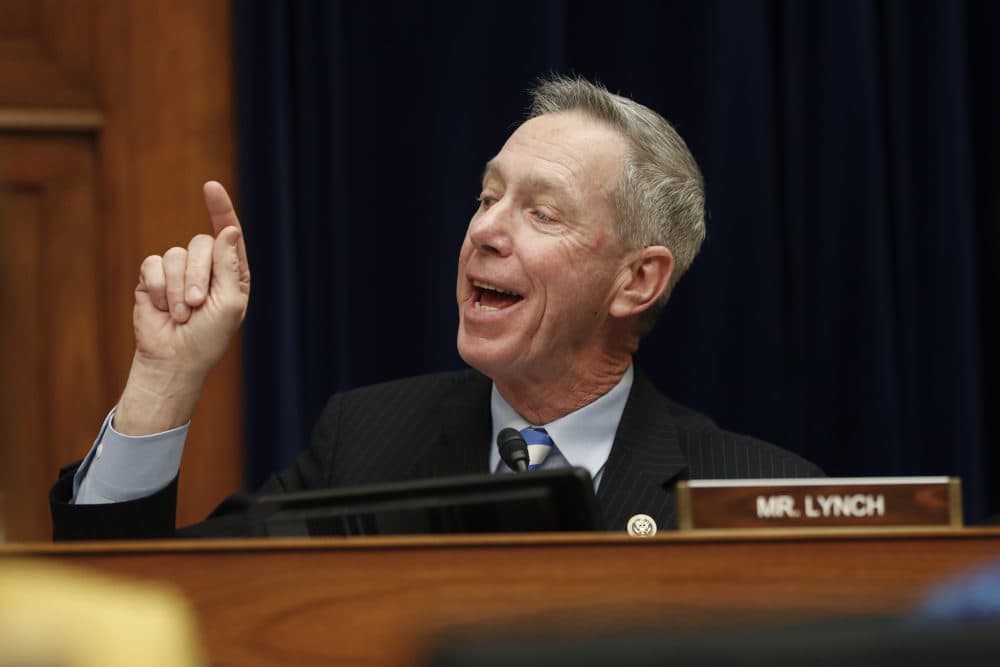Advertisement
U.S. Rep. Stephen Lynch on how he's changed over time and what's still left to do in office

We get to know Massachusetts U.S. Rep. Stephen Lynch: from his time as an iron worker and lawyer to how he's changed in the nearly 30 years he's been in elected office.
Below are highlights from his conversation with Radio Boston host Tiziana Dearing, which has been lightly edited.
Interview Highlights
On why he first ran for elected office:
"I never had sort of designs to become an elected official. I was in law school, and I did an internship with a labor law firm because I knew that's sort of the direction I wanted to go in. So my labor law firm, Gabe Dumont was the senior partner, he says, 'look kid, we're going to pay you for 40 hours a week, but we expect you to go out and work at least, you know, 15 hours, 20 hours for people who can't afford an attorney. We want you to do pro bono work out there.' ... So I went down the projects where I had grown up, the housing projects at that time called the Old Colony Housing Projects. And there are a lot of cases where they're very simple: lead paint on the windows, you know, asbestos on the pipes, uh, too many people in one apartment, uh, people under housed. So I started representing families ... for free.
"You never know how many friends you have until you start doing free legal work. And eventually, my caseload grew and some of the single moms down there said, 'We never see our elected officials down here. We got problems with gun violence. We got problems with domestic violence. We got problems with substandard housing. And we never see anybody. If you ran for state rep, at least you'd get a paycheck and you'd be able to represent us down here.' And I was very comfortable in the projects because I had grown up there for 15 years. So I went home and talked to my wife. I said, 'some of the ladies down the projects think I should run for office.' And she said, 'it's not a bad idea.' So that was basically the germ that started the idea of running for office."
On how his fellow iron workers helped him:
"I had a drinking problem early on when I was a young man. And it was the ironworkers who helped get me sober ... It was the custom back then, you know, for the older ironworkers to try to mentor the younger ones. It was mostly men at that point, although it's much more common now to see women on the job than it once was. But I think it was a paternal type thing where you see a young kid making all the wrong decisions. I think they were compelled to sort of help me out like any decent person would. But the thing is, I would listen to the ironworkers, you know, probably not my dad because he had been harping on me my whole life, but some of these ironworkers that I respected deeply, including my father would try to guide me, and I think that made a huge difference in my life."
On the work still left to be done in Congress:
"There's a ton of work that remains to be done here, both locally and nationally. I think we've incurred some damage internationally as well, and then we've got our own problems here with housing. I think that's solvable, but we're going to need to solve the public transportation issue in order to give people the option of living somewhere outside the city of Boston, but still being able to come in here for jobs. We got to help the western part of the state out as well.
"I think everyone wants to live their life in a meaningful cause. I've had a wonderful life, but there's a lot of work that remains to be done. I think that people don't understand that in this position as a member of Congress, sometimes it's like a conveyor belt of problems. Just one every seven seconds. You can't be the champion of every cause, so you've got to choose those issues where you think you can make an impact effectively ... I have to admit, in my district, this is not a thankless job. Every time I go to a town meeting and I try to go to all of them, people are saying thank you ...they must put themselves in my place like 'dear God. Would you like to do that?' I love doing it ... I don't like doing it, I love doing it (being a member of Congress.)"

